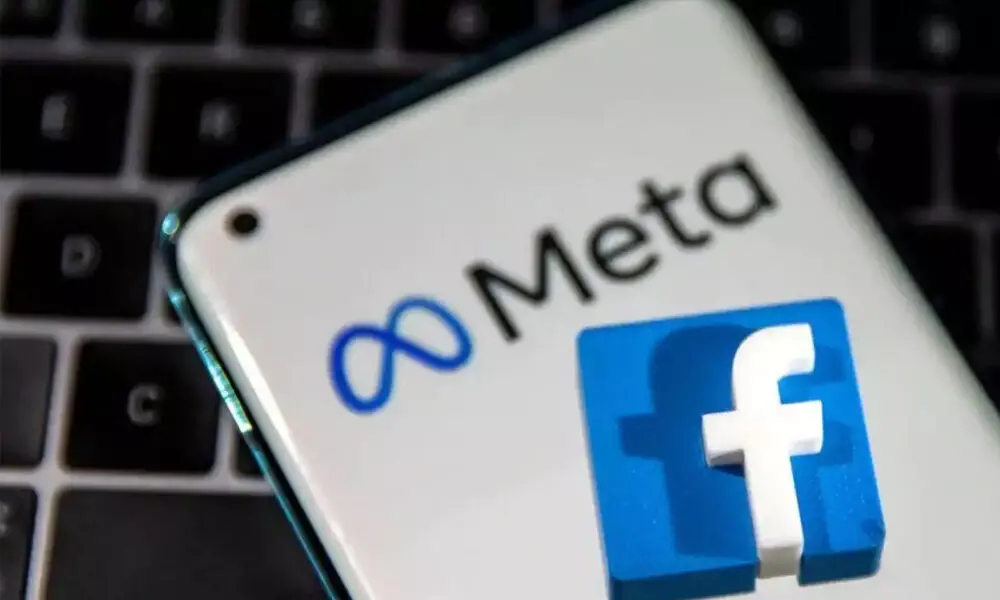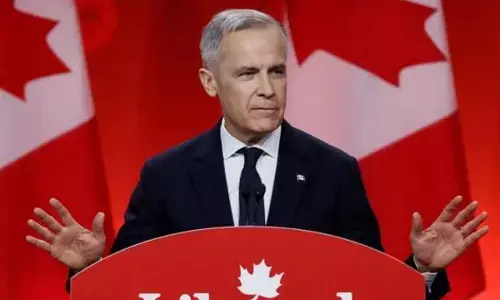War in Ukraine: How tech giants Meta, Google are 'fighting' the false information

Meta to stop people from sharing private residential info of other users
Facebook and Google said they had restricted access to some state media accounts in Ukraine at the request of the Ukrainian government.
As Russian missiles rained down on Ukrainian cities, another battle raged online and over the airwaves. Moscow stepped up efforts to control the narrative playing in the media and on tech platforms, while big tech companies Meta Platforms Inc, which owns Facebook, and Alphabet Inc's Google, imposed restrictions on the media controlled by the Russian state in Ukraine and across the world.
On Friday, Russia said it would partially restrict Facebook; Meta said it rejected a government request to stop independent verification of Russian state media outlets. On Saturday, Twitter said that its service was restricted to some Russian users. Pictures and videos took longer to load on Facebook after the slowdown was announced, as per users, while Facebook Messenger had long periods without loading. Twitter remained slow on mobile: It has been a punitive slowdown since March. Many state websites, including the Kremlin site kremlin.ru, have also been disrupted in recent days.
For tech companies, the standoff is the latest step in an ongoing confrontation with Russia, where the platforms risk government-imposed restrictions on the country as it seeks to censor dissidents while protecting state media. Giant social, video and live streaming platforms, from Facebook to TikTok and Twitch, are under pressure to combat falsehoods on their platforms related to the conflict, including the spread of misleading images.
The escalation of Russia's clash with big tech comes days before a deadline Moscow has set for major foreign tech companies to comply with a new law that requires them to establish official representation in the country, which could make it easier for the Kremlin to regulate platforms. It follows a series of fines and slowdowns imposed on platforms that the Russian government says failed to remove illegal content.
Russia threatened companies with an advertising ban this month if they didn't comply. Tighter restrictions that could follow include speed reductions or outright lockdowns, Russian officials said.
"Mark Zuckerberg, while you create Metaverse – Russia ruins real life in Ukraine! We ask you to ban access to @facebookapp and @instagram from Russia – as long as tanks and missiles attack our kindergartens and hospitals!" Ukrainian Vice Prime Minister Mykhailo Fedorov wrote on Twitter on Sunday.
Restrictions
Roskomnadzor warned local media not to circulate what it called "false information" about Moscow's military operation, banning the use of the words "invasion" and "assault" to describe its attack on Ukraine. Yandex, a Russian tech giant, has also started warning Russian users looking for news about Ukraine in your search engine on unreliable information on the Internet.
Russia calls its actions a "special operation" that it says is not designed to occupy territory but to destroy Ukraine's military capabilities and capture people it sees as dangerous nationalists. The media has long been a contentious presence on major social platforms, some of which label those accounts in an effort to be more transparent about the source of information.
Amid Russia's invasion, Facebook, Twitter, Google and its video streaming service YouTube have taken new steps to restrict Russian state media from making money from ads on their sites. Twitter, which banned ads from state-backed media in 2019, said it was pausing all ads in Russia and Ukraine to ensure visibility of public safety information. Google, the world's largest ad seller, also said it would not allow Russian state media to sell ads using its tools.
Facebook and Google also said they had restricted access to some state media accounts in Ukraine at the request of the Ukrainian government. On Sunday Google said that it had banned downloads of RT's mobile app in Ukraine in response to a legal request from the government.
With inputs from a syndicated feed











